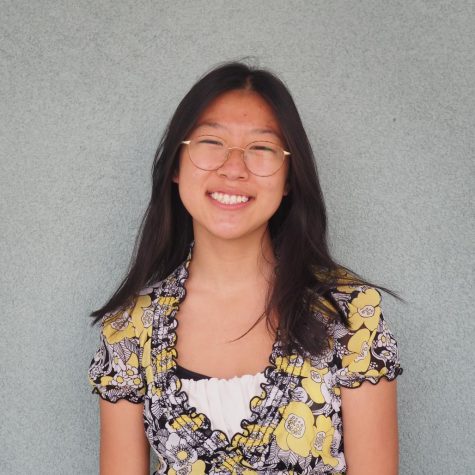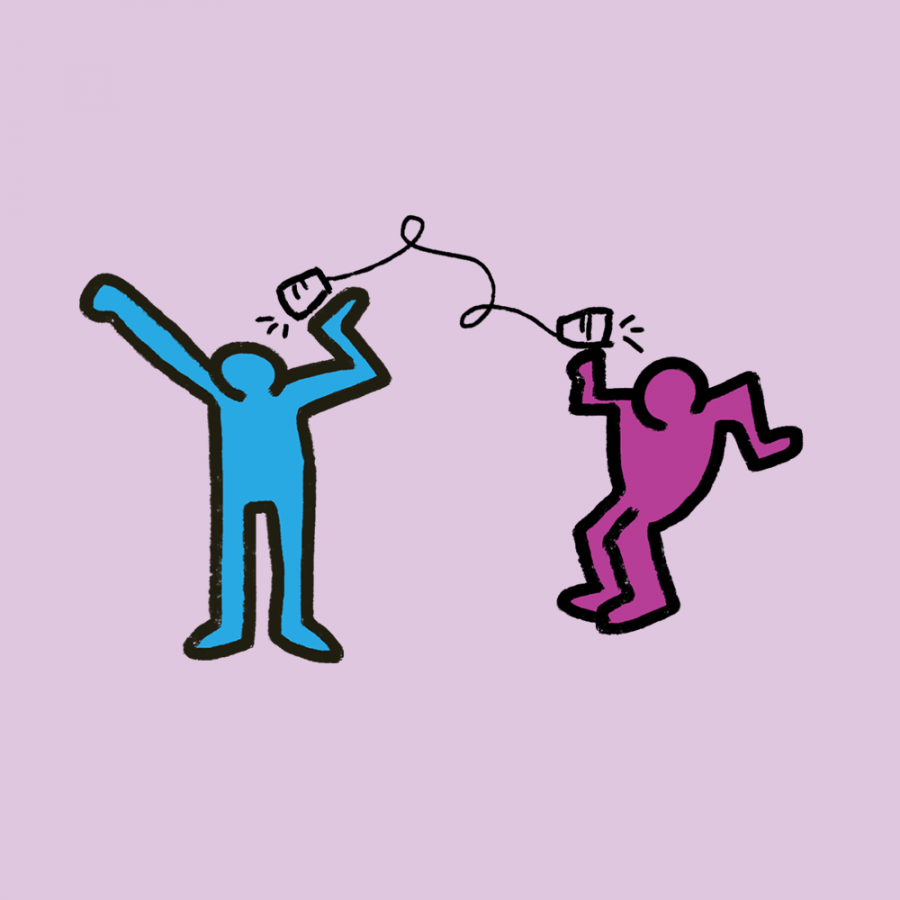Students, teachers find community online
Gunn has always been known for its sense of community: From counter-protesting the Westboro Baptist Church in 2010 to building the strong mental health supports we have access to today, our campus has always been able to come together despite many obstacles along the way. Now, students face yet another roadblock: a lack of face-to-face interactions.
Making friends in high school has proven difficult for some students, and this has only worsened without in-person connections. To ensure students remain focused during class, teachers sometimes disable the attendee-attendee chat function, leaving students’ means of connecting with new people virtually severed.
Still, students have found ways to connect despite the distance. One such method is by joining the school-wide Discord server, an online hangout where over 450 verified Gunn students can converse with each other and make new friends. The server was created in May 2020, in part to create a space where people could talk to each other despite being barred from in-person contact. It is complete with automated helper bots, daily community updates and even an announcement channel named after Student Activities Director Lisa Hall.
Because the server is completely run by Gunn students, moderators are appointed to keep the server in check. Moderator and senior Serena Li finds that regulating the server is usually quite simple. “As an admin, we have to moderate the chat and delete messages because people can be weird online,” she said. “Recently, though, we haven’t had to do that very often.”
The server is used for many purposes, such as coding modifications in #n-building and sharing artwork in #m-building. Most importantly, it is a means by which students can make new friends and forge new connections. “There is a lot more interclass communication here, where seniors and freshmen might not talk otherwise,” Li said. “It really helps people make new friends, and I personally have done so through this server.”
In addition to making friends with other classmates, the typical Gunn community also involves the relationships built between students and teachers. In a normal school year, math teacher Rachel Congress likes to greet students as they walk into every class. “Even small interactions like that have disappeared,” she said. “That’s hard because I think it’s important to know all of you and see all of you–not just see visually, but seeing you as a person, and understanding you as a person.”
Many teachers open their classes with a question to answer, prompting students to participate and share a tidbit about their lives in the Zoom chat. To Congress, an important aspect of building community is maintaining this practice for the duration of the class, past the initial introduction phase. “Sometimes we assume that everyone knows each other from the introductions in the first month of school, but that’s not really true,” she said. “So having those kinds of get-to-know-you activities throughout the year is really valuable to me.”
For Congress and many other teachers, the transition to online school and the rearranging of content has already been a time-consuming struggle. “It’s hard to split my focus to so many things like building community when I’m also running classes and organizing the curriculum,” Congress said. “Sometimes I have to tell myself to stop and take a break. I have to remind myself that I can’t do everything, no matter how much I want to.”
Even over Zoom classrooms and online chat servers, the Gunn community has continued to grow and develop, bringing with it the hope and strength needed to carry students past the temporary distance and back into schools. While we still can’t laugh with our friends face-to-face or raise physical hands in class, the teachers and students at Gunn have proven that friendships can still be maintained and new ones formed, reaching past the computer screen to connect with each other.
Your donation will support the student journalists of Henry M. Gunn High School. Your contribution will allow us to purchase equipment and cover our annual website hosting costs.

Jessica Zang, a senior, is a Features Editor and Assistant Business Manager for The Oracle, and has been on staff since Jan. 2020. When she's not spending...

Senior Mihika Sane is a graphics artist who has been a part of the Oracle staff since August 2020. In her beloved freetime Mihika likes to listen to music,...


